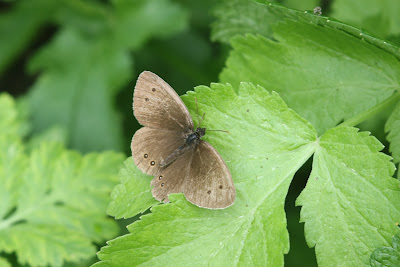What do we need in order to grow resilience? A healthy natural
world, local self-sufficiency and a robust community that is diverse, happy and
healthy so it can adjust to different circumstances. By Charlotte Synge.
Many things have
become apparent from this pandemic but one of the most obvious, and
heart-warming, is that most people are co-operators, not competitors, and they
have felt empowered and fulfilled as they work together for the common good.
This is one of the reasons why community groups, such as our garden, are an
important part of our society, especially when things get rough. Our garden
gives people a point of connection and a shared commitment to work together and
help each other out. This creates a community ecosystem of people with varied
skills and attributes that makes everyone more able and valuable as they work
together. It is this community power that gives us the strength and stability required
to adjust to new situations and to support each other. It is this community
power that gives us a sense of worth, creates relationships and enables resilience.
Well-being in the time of Covid-19
Another encouraging thing about this pandemic has been people’s
discovery of what’s really important to their well-being - food, people and
nature. Our garden provides a space where people can garden, which research
shows is good for both physical and mental well-being, but it is also a place
where people have been able to meet and share a project, even when socially
distanced during lockdown. With its wildlife areas and ethos of caring for
nature and people it also provides a wonderful space where people come to relax
and be in touch with nature. What’s more, it does this right in the city where
so many have no garden of their own; so it is no wonder that more people have
come to our garden to take solace, find community and look after their physical
and mental health during this pandemic.
It has been a
difficult time for everyone and as more information
becomes available about the pandemic, we are reminded of just how much is
outside our control. A global market has been created that has ousted out
our traditional local system, we no longer buy mainly local goods, we don’t give enough support
to our small local businesses and we spend our money outside our locality. This
pandemic has highlighted exactly how dangerous this globalisation is when a
crisis hits. Anything we can do to help strengthen our local system and make
ourselves more self-sufficient has to help us be more prepared for future
crises. Our community garden naturally does this. It produces lots of local
food, enabling us to ease our dependence on imports, reduce food miles and
share excess with those in need. This feels good but our most important crop is
in fact resilience - which feels great.
Testimonials
People have expressed many
thanks for and opinions on Empty Common Community Garden during these times.
Here are a few.
“From
my point of view, I like the fact that, although this time is so
weird, nature and the garden keep a similar schedule to last year and
last century and provides a constant and a marker of time passed when so
much else is on hold.” Nicola
“I
love the community garden because it improves my physical and mental health.
Getting outside in the fresh air, working with the Earth, with others around me
is healing. I don't have a garden myself - I live in a flat. Besides this I am
learning important skills in how to grow vegetables. I will use these skills in
the future. They are so important to have as we may need to grow in small local
gardens more and more in the future, as climate change challenges larger farms that cannot
adapt as quickly.” Giulietta
“I
often go down there as an escape from the world, and I always feel a weight
lifting as I walk down the path towards the garden. It’s an oasis of peace, and
a generous community of all sorts of lovely and interesting people.” Sophie
“During this extremely difficult time in my
life Empty Common has very much kept me in touch for over five years with my
local community, enabled me to work at my own pace, provided the help and
support I've very much needed over these years and even earned me a reputation,
in my better years, as 'a prime digger'. The recent development of a home
delivery, by one of the gardening gang, of Empty Common's out-of-this world
rhubarb has also been much appreciated.” Peter












































